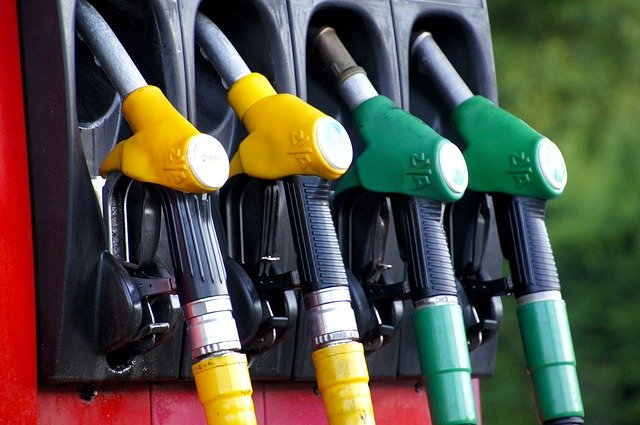If your car’s or truck’s check engine light turns on suddenly, take it to your mechanic immediately. They can use their tools to communicate with your vehicle’s On-Board Diagnostic system and reveal the reason for the check engine light.
One reason could be a bad fuel pump. When a fuel pump goes bad, the pump has become damaged or cracked and can no longer pump the right amount of fuel from the tank to the engine.
To fix this issue, you have to repair or replace it, depending on the amount of damage.
Here’s what you need to know about bad fuel pumps, their causes, and the symptoms you can watch out for in the future.
Will A Bad Fuel Pump Throw a Code?
Yes, a bad fuel pump will throw a code and turn on your check engine light.
The pressure must reach a certain amount, depending on the make and model. If your fuel pump doesn’t reach that amount of pressure or creates too much pressure, it could be bad for your vehicle.
So, what is happening to your fuel pump for the check engine light to turn on? When the fuel pump breaks, it can no longer reach the amount of pressure needed to supply the engine with the right amount of fuel.
The code for an issue with the fuel pump is P0087 or P0088. This code is also the same code for a misfire, as a bad fuel pump can sometimes cause misfires.
The diagnostic parts that monitor the section around the fuel tank will send a signal to the computer system in your vehicle so it can turn on the check engine light and warn you of an issue.

What Causes Fuel Pump to Go Bad
A bad fuel pump left untreated or unfixed can seriously mess up your engine, as the fuel pump is no longer pumping the right amount of fuel into the engine.
Your vehicle will not be able to accelerate as fast as it once did and will move slower, even if you use more gas. Your engine could randomly turn off when the vehicle is idle or not moving, which could be bad if you are waiting at a red light.
If the fuel pump gets bad enough, you will not be able to start your vehicle at all.
There are four main reasons. All of them could lead to larger issues within the vehicle if not cared for at the right time.
Car’s system electrical problems
The first reason is the car’s system has electrical problems. There could be significant issues with the battery or with the wiring in the system. Electrical problems can make it difficult for entire areas of your vehicle to operate properly.
If it was the fault of the electrical system, you would also have trouble using your lights inside of the vehicle or using the stereo system and the video screen.
Another substance leak inside
The second reason is another substance is leaking inside the fuel tank. The only substance that should be inside the fuel tank is gasoline. A vehicle’s engine system is not designed to hold any other substance or liquid in the pipes that houses, transfers, and processes gasoline.
So, if there is any other type of substance where only gasoline should be, it can cause corrosion to many parts of the engine system. The other substance can turn the gasoline less or denser, which makes it harder for the fuel pump to put it properly.
Old build-up or residue coating
The third reason is the old build-up or residue coating the fuel pumping system. This is a common sight in older cars. The build-up will make it harder for the fuel pump to move and do its job.
Reach maximum life span
The fourth reason is the age of the fuel pump. If you are driving an older car, it is natural for some parts to start to wear out and break. When the mechanic confirms the damage to the fuel pump is because of age, have them go over your car and find any other parts that are about to break.

Symptoms Of a Bad Fuel Pump
Now that you know why a fuel pump can go bad and break down, you need to learn the symptoms of a bad fuel pump to identify the problem faster in the future.
- The check engine light is on – the check engine light is not to be ignored. Never hope it goes away; have your mechanic check out the reason for the check engine light with their diagnostic tools.
- The engine will not start or will start after a few tries – the fuel pump is not pumping the right amount of gasoline required to hold the vehicle’s initial ignition.
- Your car doesn’t accelerate as quickly as it once did.
- The car accelerates with very little pressure on the gas pedal.
- The vehicle can’t stay on when the car is not in motion – if your vehicle is on but not moving and the engine turns off, it could be because the fuel pump is not pressurized properly.
- Your car is using gas faster but doesn’t go as far – Terrible fuel efficiency is a pretty good sign that your main problem is the fuel pump. A faulty fuel pump pumps too much gasoline inside the engine when the system doesn’t need that much.
- Engine overheats more often – if your fuel pump is pumping too much gasoline into the system, it could cause the engine to overheat because it has too much fuel that it doesn’t need.
If you are experiencing two or more of these signs when using your vehicle, you can surmise that it might be a fuel pump problem. Then it’s time to take your car to your mechanic.
Conclusion
A bad fuel pump will cause your check engine light to turn on, and it will throw a code. If your check engine light comes on for any reason, always use your computer system to find out the issue or take it to your mechanic.
Don’t wait until the problem gets worse as the engine is a system of moving parts, and the problem can quickly spread to other areas of the vehicle.



